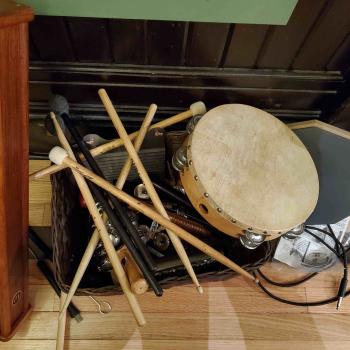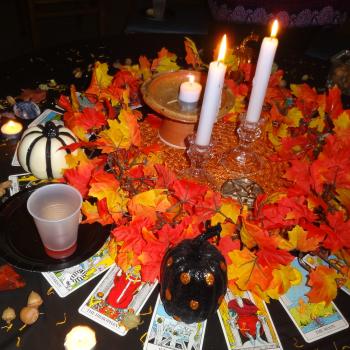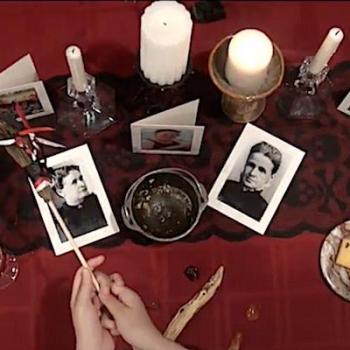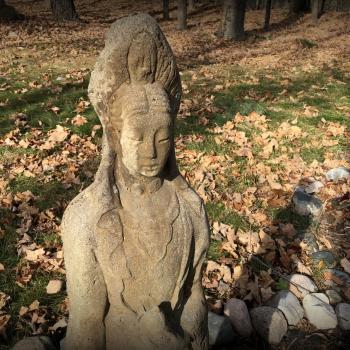Contemporary Relevance
Does this interpretation provide lessons that relate to what we are going through currently? I believe it does. I remember growing up with the patriarchal monotheistic worldview of religion as the only possible sacred story. It left the female, and by extension, me, and all women, out of the positive aspects of the creation story. In the patriarchal creation story, a woman, Eve, is represented as weak, talking to the snake, another sacred being in Old Europe who in this version confers evil to Eve. Female bodies were seen as tempting the religious male away from God. War was inevitable. Then we heard a different story, an older story, confirmed by the findings of Marija Gimbutas. Hearing this story in the presence of others as we sat in spiritual circles created a paradigm shift.
“The Goddess-centered religion existed for a very long time… leaving an indelible imprint on the Western psyche.”
— Marija Gimbutas
This fresh perspective gave women back our innocence, our self-respect and our appreciation for the processes of our own sacred bodies. It reminded us of our responsibility to be involved in society and the world. These stories also have appeal for men who have been able to step away from the traditional domination story of men over women and claim their own caring qualities.
Women’s Marches – Female Leadership
Moving forward to present day. On January 20-21 marches all across North America and around the world were broadcast on television so we all could participate. The phrases #MeToo and #TimesUp protesting sexual abuse toward women were on the minds of many marchers. Signs also called attention to immigration policies and LGBT rights. At rallies women were urged to run for leadership positions at all levels of government. Speakers affirmed women’s contributions to varied social institutions and the family.
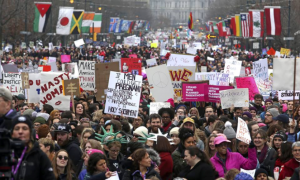 One of the central focuses of the protests is a woman’s right to control her own body. In the landmark Supreme Court decision Roe v. Wade which was handed down 45 years ago this week, women were granted the right of privacy, protecting our ability to make our own decisions about when or whether to become mothers. For more information on what the UU Women’s Federation is doing to advocate for women’s right to choice and to protect the full range of services for women’s reproductive needs, including access to birth control, see UUWF Actions .
One of the central focuses of the protests is a woman’s right to control her own body. In the landmark Supreme Court decision Roe v. Wade which was handed down 45 years ago this week, women were granted the right of privacy, protecting our ability to make our own decisions about when or whether to become mothers. For more information on what the UU Women’s Federation is doing to advocate for women’s right to choice and to protect the full range of services for women’s reproductive needs, including access to birth control, see UUWF Actions .
It seems to me, then, that the DNA evidence reaffirming aspects of the research of Prof. Gimbutas which invites us to revisit ancient woman-honoring societies and the resurgence of the Women’s Movement both promote action. This extends to reclaiming the sacred nature of all creation and women’s right to fully participate in all areas of social life. The evidence of peaceful societies where women and men were able to co-exist and flourish in equal partnership continues to inspire us. Those who speak out invite us all to continue to make our own voices heard whenever and however we can.




